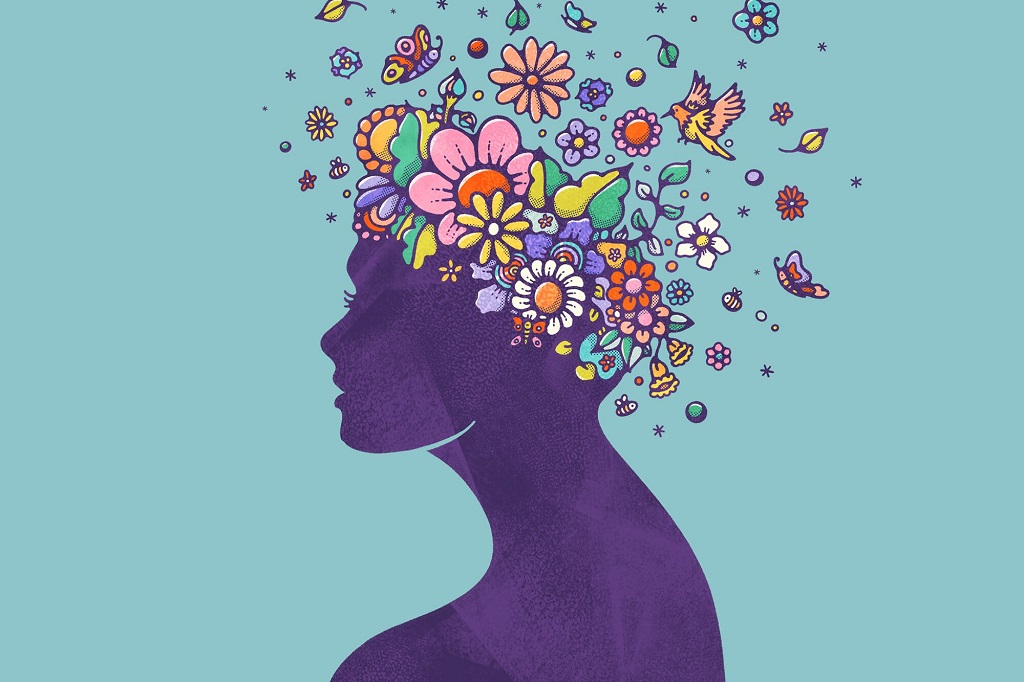
In today’s fast-paced world, it’s easy to prioritize work deadlines, social obligations, and physical fitness over our mental well-being. However, neglecting our mental health can have a significant impact on our overall well-being, affecting our physical health, relationships, and ability to function in daily life.
This guide emphasizes the importance of prioritizing mental health and equips you with practical strategies to cultivate a sense of well-being in modern life.
Why Does Mental Health Matter? Understanding the Mind-Body Connection
Mental health isn’t just about feeling happy. It encompasses our emotional, psychological, and social well-being. It influences how we think, feel, and act, impacting how we handle stress, relate to others, and make choices.
Here’s why prioritizing mental health is crucial:
- Physical Health: Mental health and physical health are intricately linked. Chronic stress, anxiety, and depression can weaken the immune system, making you more susceptible to physical illness. Conversely, physical health problems can also impact mental well-being.
- Relationships: Mental health issues can strain relationships with family, friends, and romantic partners. Difficulty managing emotions or low self-esteem can hinder communication and connection.
- Work and Productivity: Mental health plays a significant role in job performance. Stress, anxiety, and depression can lead to difficulty concentrating, decreased motivation, and increased absenteeism.
- Overall Quality of Life: Poor mental health can significantly impact your overall enjoyment of life. It can rob you of energy, motivation, and the ability to engage in activities you once enjoyed.
Recognizing the Signs of Mental Health Issues
While everyone experiences occasional stress, anxiety, or low moods, these feelings become a cause for concern when they become persistent and interfere with daily life. Here are some signs that might indicate a need for professional support:
- Changes in Mood: Feeling persistently sad, hopeless, or irritable.
- Changes in Sleep Patterns: Difficulty falling asleep, staying asleep, or sleeping excessively.
- Changes in Appetite: Significant weight loss or gain due to changes in eating habits.
- Loss of Interest: Loss of interest in activities you once enjoyed.
- Difficulty Concentrating: Difficulty focusing on tasks or remembering things.
- Social Withdrawal: Avoiding social interaction or isolating yourself from others.
- Increased Anxiety: Feeling excessively worried or on edge.
- Suicidal Thoughts: Having thoughts of harming yourself or ending your life.
Prioritizing Your Mental Wellbeing: Practical Strategies for Modern Life
Fortunately, numerous strategies can help you cultivate and maintain good mental health:
- Develop Healthy Habits: Prioritize regular sleep, a balanced diet, and physical exercise. These habits provide your body and mind with the foundation for optimal well-being.
- Mindfulness and Relaxation Techniques: Practices like meditation, deep breathing, and yoga can help manage stress, improve focus, and promote relaxation.
- Positive Relationships: Nurturing strong relationships with supportive family and friends provides a sense of belonging and connection, which are crucial for mental well-being.
- Develop Coping Mechanisms: Learn healthy ways to manage stress, such as talking to a trusted friend, journaling, or engaging in relaxation techniques.
- Set Realistic Goals: Unrealistic expectations and chronic self-criticism can take a toll on mental health. Set achievable goals and celebrate your accomplishments.
- Seek Professional Help: There’s no shame in seeking professional help for mental health concerns. Therapists can provide support, guidance, and evidence-based treatments.
Beyond Self-Care: Fostering a Supportive Environment
While individual efforts are essential, creating a supportive environment is crucial for promoting mental well-being on a broader scale:
- Normalize Open Communication: Encourage open conversations about mental health within families, workplaces, and communities.
- Reduce Stigma: Challenge the stigma surrounding mental health issues.
- Support Mental Health Resources: Advocate for increased access to affordable and quality mental health services.
Remember, you are not alone. Mental health challenges affect millions of people globally. By prioritizing your mental well-being, adopting healthy habits, and seeking help when needed, you can cultivate a sense of peace, resilience, and overall well-being.
Additional Resources for Mental Health Support:
- National Alliance on Mental Illness (NAMI): https://nami.org/Home
- National Institute of Mental Health (NIMH): https://www.nimh.nih.gov/
- MentalHealth.gov: https://www.samhsa.gov/
Taking Care of Yourself is Not Selfish, It’s Essential
Prioritizing mental health isn’t a luxury; it’s an investment in your overall well-being. It empowers you to:
- Become More Resilient: By managing stress effectively, you’ll be better equipped to navigate life’s challenges.
- Boost Your Productivity: Improved focus and concentration lead to increased productivity and a sense of accomplishment.
- Enhance Your Relationships: Strong mental health allows you to build and maintain healthy relationships with loved ones.
- Live a More Fulfilling Life: When you feel good mentally, you’re better equipped to appreciate life’s joys and engage in activities that bring you fulfillment.
Mental Health Apps and Technology: Can They Help?
Mental health apps and online resources can be valuable tools to complement your self-care routine. Here’s how they can be beneficial:
- Accessibility: These resources offer convenient access to information, guided meditations, and mindfulness exercises.
- Tracking and Monitoring: Many apps allow you to track your mood, sleep patterns, and symptoms, providing valuable insights into your overall mental well-being.
- Support and Connection: Some apps offer online forums or communities where you can connect with others going through similar experiences.
However, it’s important to remember that mental health apps are not a replacement for professional help. If you are struggling with significant mental health challenges, seeking professional support from a therapist or counselor is crucial.
Remember:
- Look for apps with evidence-based practices and reputable sources.
- Use apps as a supplement to your self-care routine, not a sole solution.
- Be mindful of data privacy and security when using mental health apps.

Building a Culture of Mental Well-being: A Collective Effort
Promoting mental well-being goes beyond individual actions. Here’s how we can foster a culture of mental health in our communities:
- Workplace Wellness Programs: Employers can implement programs that promote mental health awareness and access to resources for employees.
- Educational Initiatives: Schools and communities can offer educational programs to increase mental health literacy amongst youth and adults.
- Open Communication in Social Circles: Normalize conversations about mental health within friend groups and family gatherings.
- Challenging Stigma: Be mindful of language and actively challenge the stigma surrounding mental health issues.
Related: How to Make Rosemary Oil
Conclusion: Taking Charge of Your Mental Wellbeing – A Lifelong Journey
Mental well-being is not a destination; it’s a lifelong journey. By prioritizing self-care, adopting healthy habits, and seeking support when needed, you can cultivate a sense of resilience, peace, and overall well-being. Remember, taking care of your mental health isn’t selfish; it’s an investment in your ability to live a more fulfilling and meaningful life.
Embrace the journey of prioritizing your mental health. You deserve to feel good and thrive!
